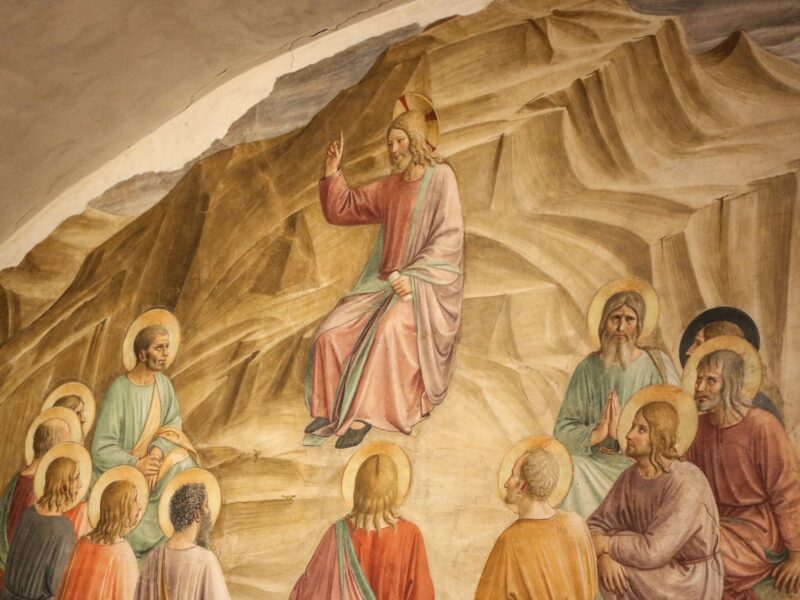
Answering John
Third Sunday of Advent (Gaudete Sunday). Fr Rudolf Löwenstein preaches on Jesus’ reply to a question carried from an imprisoned John the Baptist.
There are many ways of asking questions, and there are probably just as many ways of answering them. How a particular question is answered depends on a variety of factors — who asked the question, what it was in the first place, and even the personality or mood of the person answering.
It is a mark of wisdom to know how to give the most appropriate answer to a question, so that listeners are really given the information they need to know.
So why does Jesus give such an answer as he does, when the disciples of John come to see him? Why, in answering their question, did he not just say, ‘Yes, I am the one who is to come.’?
But in speaking as he did, Jesus will have taken the background of John’s disciples into account. Imagery is important for many people, and so when Jesus spoke to them, he would have known well how to reinforce what he was saying so that it would make the most fitting impression on them.
For example, Jesus would have been well aware that John and his disciples would have been brought up with a knowledge of the Scriptures. So in saying to John’s disciples that
the blind see again, and the lame walk, lepers are cleansed, and the deaf hear, and the dead are raised to life and the Good News is proclaimed to the poor?,
Jesus is not just using poetic language or boasting, but quoting partly from the passage of Isaiah which was our first reading today.
So not only is he telling the disciples of John what is happening, but he is also telling them in such a way that what they hear is put in the context of the already familiar. This will be more likely to be remembered and understood by them, and makes for the most satisfactory answer to their question.
If we reflect for a moment on this passage of Isaiah, we see that the passage is rich in imagery and implication for anyone who hears it. For not only are the happenings that Jesus quotes illustrated, but there are many other images represented. The wasteland, an image of desolation and dullness is to bloom — which will mean colour, life, and variety.
And if the wasteland is to rejoice and sing for joy in addition to all this brightness of the flowers, then there will be much rejoicing for all who witness it. But this is not just a wasteland blooming with flowers and rejoicing — it is qualified by having the glory of Lebanon, as well as the splendour of Carmel and Sharon. So we are thinking of something not just glorious, but maybe doubly or even triply so.
This imagery will not have been lost on the disciples of John, as they heard the words of Jesus. With confidence in what they heard they would have returned to John, ready to give him his answer. An offhand or short answer may have represented the truth, but it would not have shown Jesus to John’s disciples in the way he really stood.
As if to reinforce his point, Jesus goes on to say to the people, ‘What did you go out into the wilderness to see??’ Here Jesus is asking people to reflect on what they see with what they hear. One might expect such an important message to be uttered by someone in fine clothing, as no doubt many expected, but this is not the case, as Jesus lets his hearers know.
Fine clothes belong to palaces, and this is a doubly clever point being made; not only are the people reminded that the truth does not necessarily come from well-clothed people, but that it also comes from John as the herald of Christ. And John is currently in prison where he would not be wearing fine clothes at all.
Thus the presence of the Messiah is announced and confirmed by Jesus. As we prepare for Christmas, we would do well to remember the import of today’s readings. For if Jesus is to come to us at Christmas, and this is to be the cause for great rejoicing, surely we can prepare for his coming so that we too can rejoice with everyone else — shouting for joy, and with everlasting joy on our faces.


